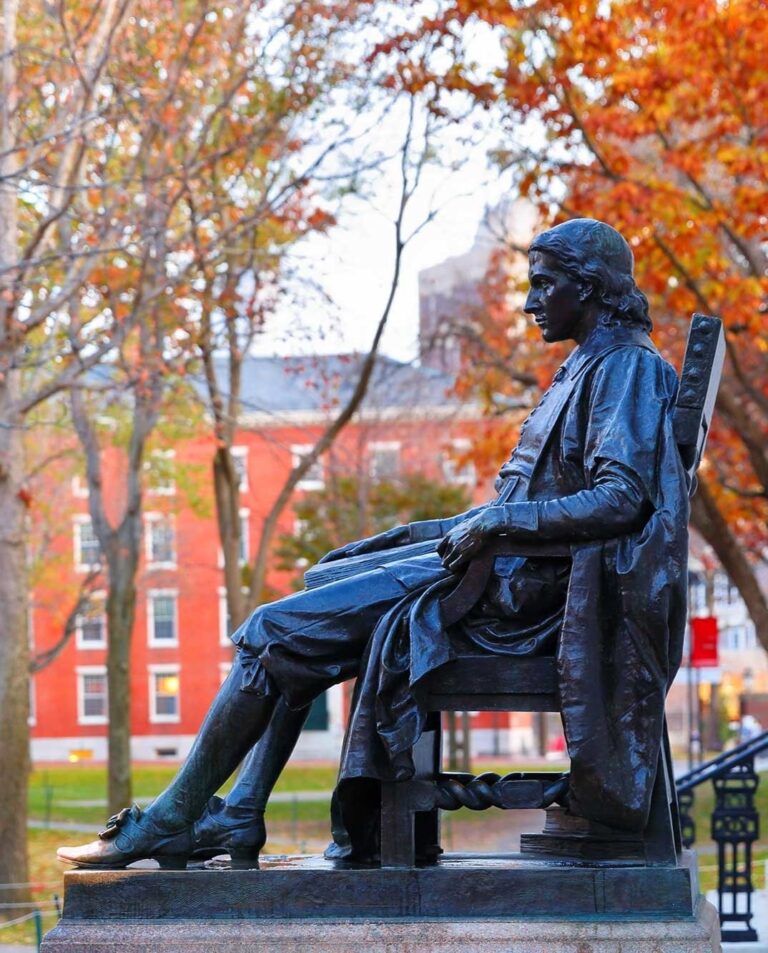By Andrea Tucci,
In recent months, institutions, law firms, and universities have faced intrusions from the Trump administration, with requests to eliminate ongoing programs, under the threat of freezing federal funds. Many have sat down at the table to reach an agreement. Among them, Columbia University agreed with the administration, granting greater power to security officers to identify and arrest individuals deemed “agitators” within the campus, and complying with requests to monitor Middle Eastern-related courses. The academic institution’s goal was to unlock $400 million, previously suspended by the administration. Despite the agreement, the funds remained frozen, and the administration made increasingly pressing demands.
At the same time, the government began reviewing funds received by Harvard University, one of the most prestigious in the United States. This months, while some reports suggest that the university’s board and administration were in talks on the matter, the academic institution received a letter from the White House’s anti-Semitism task force with demands considered unacceptable, which required immediate cooperation under the threat of losing all financial ties with the government. Among these demands were the modification of all the university’s selection processes, both for students and faculty, eliminating any hiring criteria based on ethnicity, gender, or religion, the end of protests on campus, and serious disciplinary measures for violations, including those predating the letter’s delivery.
The letter shocked Harvard not only due to the nature of the demands, which were similar to those the administration had made to other entities, but especially because, at the time the letter was sent, a negotiation table between the parties was already in progress. Among other things, Harvard had already agreed to adopt a new definition of anti-Semitism, including certain criticisms of Israel.
Harvard, has responded strongly, refusing to meet any of the demands and suing the administration itself. Harvard’s president, Alan Garber, said that “this government wants to decide whom we hire and what we teach; and for this, we fight for the values that have made American education a beacon in the world, seeking academic excellence, safeguarding research, and freedom of thought.” While awaiting a court’s decision, Harvard saw her $2.2 funds billion frozen, with the potential to rise to $9 billion, and the possibility of losing its tax-exempt status, which is vital for receiving substantial tax-deductible donations. Additionally, moreover he university has been threatened with a block on enrolling international students.
The rationale behind the administration’s strong interference in academic life is linked to a lack of response from the universities to the pro-Palestinian protests that took place on campuses last year: events that allegedly jeopardized “the safety of Jewish students on campus” and which were not, according to this administration, addressed swiftly with disciplinary actions.
Truly, controlling and redefining the admission standards of elite universities would, therefore, aim to alter the university population.What the government did not expect, however, was Harvard’s resistance in court, especially in a pattern like where all the other major institutions tried to make a deal with Trump as soon as possible in an attempt to avoid his wrath.
One of the reasons why the university could afford to openly clash with the government is its wealth. As of 2024, more than 70% of Harvard’s endowment is invested in hedge funds (investment into private companies) and private equity (investment into companies not listed on the stock market holds the investment for years) with a total value of $50 billion; although not all of it, the institution can access some of these funds and thus has the ability, at least for a limited time, to compensate for lost government funding using its own savings. This is why Harvard can afford to fight a battle on behalf of the entire U.S. academic system. In any case 150 universities denounced with a letter Trump’s interference in academic prerogatives limiting the power of faculty members.
The strength of American universities, since World War II, has been linked to massive government investment in research, which led to the construction of elite centers that attracted scientists from every corner of the globe to the United States. Today, American research is experiencing a period of profound uncertainty: the National Institutes of Health (NIH), has been crippled by the new administration, announced that it would withdraw all funding for medical research from universities that maintain diversity and inclusion programs or continue to boycott Israeli companies.
Additionally,the situation for many non-U.S. researchers, who may have politically exposed themselves in recent months or years, is complex: more than a thousand students have had their visas revoked and were forced either to leave the country or to engage in legal battles to regain them. Those who have not faced this yet prefer not to leave the U.S., fearing they may not be able to return.
This difficult context has led more students to prefer other destinations over the United States. Between January and March 2025, 32% more U.S. students than the previous year decided to apply for research opportunities abroad, where they often face lower salaries but greater certainty about the future of their research projects.
Harvard’s defense of academic prerogatives is therefore a fundamental battle for the future of American universities: if the administration were to prevail in court, nothing would prevent it from fully entering into university programs and hiring decisions, leading to a cultural impoverishment of the universities themselves.
(In the picture of the article: Statue of John Harvard at Harvard University, a symbol of learning, ambition, and independence)



